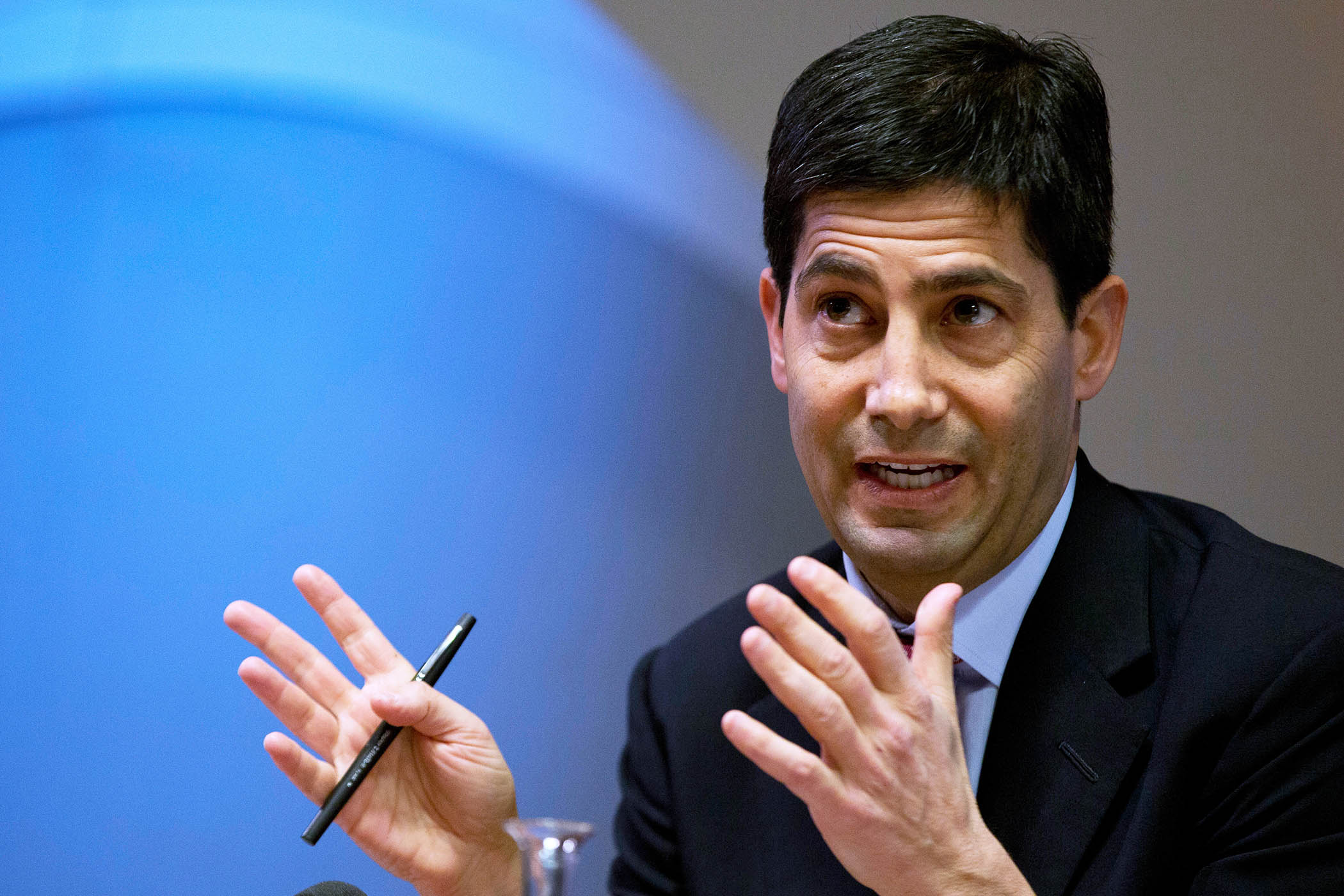Do unto others as you would have them do unto you. That’s the golden rule I remember being taught as a child in primary school. Not a bad guiding principle.
A little later, upon starting university, I discovered that economists had come up with one of their own: the golden rule savings rate is the one that maximises long-run consumption per person. Then, when I joined the Institute for Fiscal Studies, I discovered yet another golden rule, this one adopted by Gordon Brown as chancellor: a promise to borrow only for investment that benefits future generations, not to fund day-to-day spending over the economic cycle.
Golden rules abound – and now we have another. Tory leader Kemi Badenoch has announced a “new golden economic rule” to guide the policy of a future Conservative government. This rule requires that for every pound saved via spending cuts, at least half will go towards reducing borrowing. Only the remainder could be spent on tax cuts or extra spending elsewhere.
I can see the big picture message the Conservatives are trying to send here: spend less, and borrow less. Those are perfectly reasonable as high-level objectives. But their golden rule is an oddity, which I doubt would stand the test of time.
Imagine, for instance, a world where the geopolitical situation changes for the worse, and there’s a need for the UK to rapidly increase spending on defence. One natural response might be to reduce spending on a non-priority area, and siphon the money to the armed forces. Yet this wouldn’t be possible under Badenoch’s golden rule, which would allow at most half of the cash to be redirected to defence. One consequence, presumably unintended and somewhat ironic, is that tax rises would become the more attractive and more flexible funding option.
Or suppose the economy enters recession. The chancellor wants to change priorities, and cut low-value spending programmes to fund temporary, targeted tax cuts that support the recovery. But the Conservatives’ golden rule would force at least half of the savings into reducing borrowing – an unnecessary, pro-cyclical tightening when macroeconomic textbooks would prescribe the opposite.
Amid such global uncertainty, politicians who tie their own hands unnecessarily may come to regret it
Amid such global uncertainty, politicians who tie their own hands unnecessarily may come to regret it
I could go on. The point is not to criticise the Conservatives’ big picture objectives; it’s to point out that their golden rule is clumsy, inflexible and unnecessarily restrictive. Not every cut to public spending should be accompanied by a reduction in borrowing.
Not to be outdone, Nigel Farage recently declared that Reform UK would “never borrow to spend”. This wasn’t described as a golden rule (or in terms of any other precious metals), and could just be sloppy language that is revised in future. But taken literally, it reads like a promise that a Reform UK government would never run a budget deficit.
Related articles:
For reference, on the latest official forecast, the budget deficit is expected to be around £75bn, or 2% of GDP, at the time of the next election. To give a sense of scale, that’s equivalent to roughly 50 times the amount Labour sought to save by means-testing winter fuel payments for pensioners last year.
On the face of it, Reform UK is promising that upon taking office, it would seek to immediately cut that amount from public spending. And, if the economy entered a downturn, and tax receipts dipped, a Reform UK government that is never willing to borrow would need to cut spending or raise taxes, very likely making the downturn worse. I doubt this rule, such as it is, would stand the test of time either. It’s possible Farage had in mind only borrowing for day-to-day spending – but if that’s what he meant, that’s what he should have said.
Newsletters
Choose the newsletters you want to receive
View more
For information about how The Observer protects your data, read our Privacy Policy
You might think I’m nitpicking, but political parties setting out poorly developed, poorly worded rules do us all a disservice. A bad policy rule makes for bad policy – or for another broken promise if, as seems more likely, it is abandoned upon contact with the real world. Amid such pronounced global economic uncertainty, politicians who tie their own hands unnecessarily may come to regret it.
So, as opposition parties scrutinise and criticise Rachel Reeves’s choices this autumn, they’d be wise to remember the golden rule of my primary school days – for there are tough questions to be asked of their policy stances too.
Ben Zaranko is associate director of the Institute for Financial Studies
Photograph by Rasid Necati Aslim/Anadolu via Getty Images



